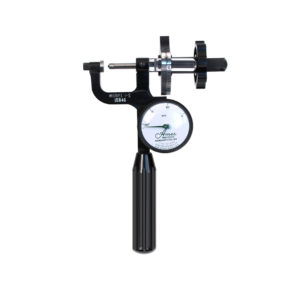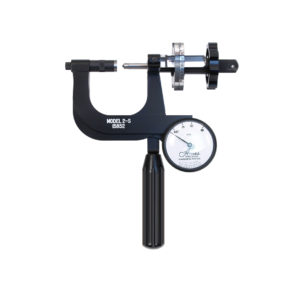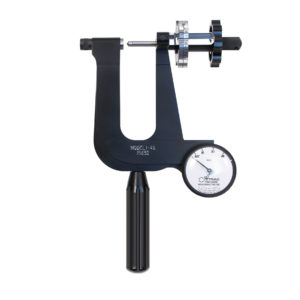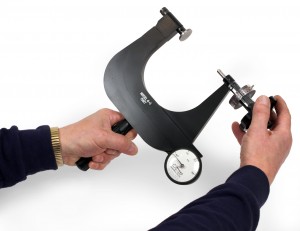Why choose a Superficial Hardness tester?
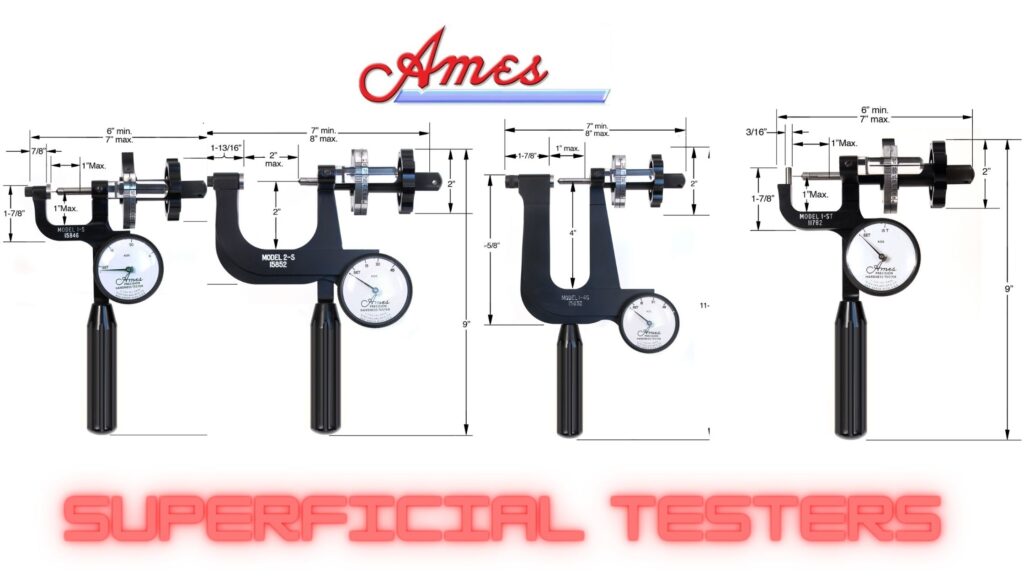
Superficial testers are designed to test very soft and very thin materials and are designed to leave minimal surface distortion. The three reasons to choose an Ames Superficial hardness tester are, you are testing a very thin or soft material, standard superficial testers will destroy these materials or the test will show the hardness of the penetrator. This test will leave a less noticeable mark on the material you are testing. The superficial tester uses 15, 30, and 45 kg weight to measure rather than 60, 100, or 160 kg as with a standard hardness tester.
Use the Rockwell “N” scale to test Hardened steels, case hardened steels, and hardened strip steels down to about.006″ thick, and when you need to keep the mark left behind by the tester to a minimum. Use the Rockwell “T” scale to test soft steels, copper, and aluminum alloys. You can use an additional ball penetrator to test in Rockwell “W” for some hard thin material down to .006″ thick and cemented carbides. Rockwell “X” and “Y” scales are used for testing plastics. The model 1-ST is designed to test small-diameter and thin-walled tubes. Using Rockwell “15-T” to test tube materials like aluminum, thin steel, lead, iron, titanium, copper alloys, and cemented carbides.
Industries such as aerodynamics, steel plants, stamping manufacturers, electronics, appliances, and air conditioning part manufacturers use these superficial testers because their components are super soft and thin.
Superficial and standard hardness testers operate in the exact same way. The major difference is the material tested and the Rockwell scale you are testing in. You can purchase an Ames superficial tester in most of the same sizes as standard testers, with the exception of the model 8 and 16 testers, there is a like tester in the 4 main sizes of superficial testers:
Model 1-S and model 1 Ames testers are the same size. They have an opening 1 inch wide and a depth of 1 inch, so they are ideal for testing smaller parts.
The model 2 and 2-s are the same size and have an opening of 2 inches with a depth of 2.115 inches.
The model 1-4S and model 1-4 are the same sizes featuring an opening of 1 inch and a depth of 4 inches, great for longer, thin materials.
The model 4-4S and model 4-4 testers are the same size 4 inches wide and deep to allow you to test larger materials
The only tester with no standard equivalent is the model 1-ST, a special tube hardness tester.
